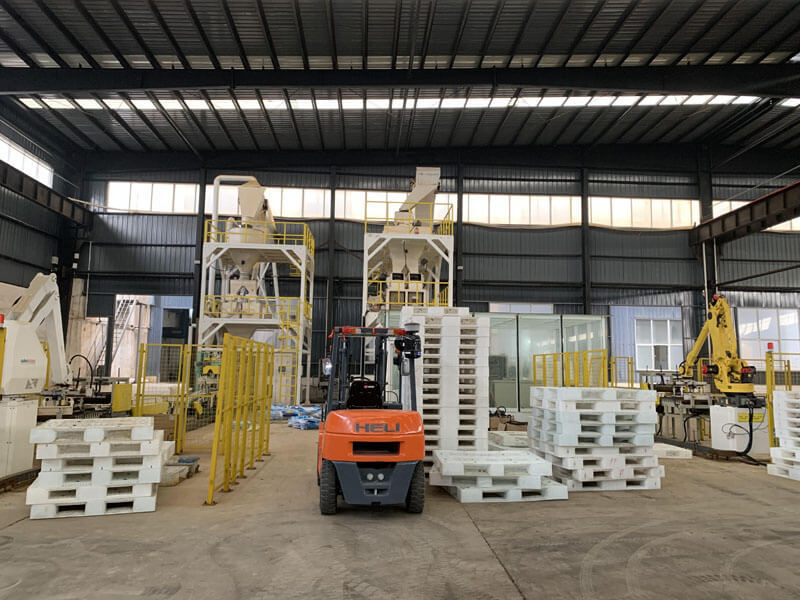

Ningxia Tianren Goji Biotechnology was established in December 2013.
The production and processing area covers an area of 38,000 square meters(㎡), of which the purification area is 2,900 ㎡. It is an "autonomous region science and technology small and medium-sized enterprise", "Zhongwei City key leading enterprise in industrialization of agricultural product", and "Ningxia autonomous region Lycium barbarum Glycopeptide Products (Zhongning) Technology Innovation Center". Its main business is the advanced processing, research and development, production and sales of Lycium barbarum.products.
In 2016, it obtained the exclusive right to use the patented technology of LbGp extraction from SIOC. It has successfully translated this into commercial production of LbGp ensuring the bioactivity of the product using the extraction and inorganic separation technology, cutting-edge pretreatment method, ceramic membrane separation technique based on porous media sieving effect, online disinfection of the separation process, and advanced vacuum freeze-drying technology.
In 2017, the world's first LbGp production line was built, and the production license for general food and special dietary food was obtained. It can produce Lycium barbarum peptide powder, Lycium barbarum seed oil, Lycium barbarum enzyme, and small molecule drinks. The annual consumption of Lycium barbarum dried fruit is 500 tons; annual output of LbGp powder and LbGp tablets is 5 tons and 80 million respectively. The main products of the company are: LbGp powder, candy tablet, special dietary products, as well as Lycium barbarum seed oil cosmetics. Beyond Ningxia in the Mainland and far in Hong Kong, we have a group of regular customers.
The extracted Lycium barbarum glycopeptide was granted the "2019 Plant Extract Product Innovation Award" by the China Chamber of Commerce for Import and Export of Medicines and Health Products. It has successively passed the ISO9001 certification, HACCP certification, and US FDA filing, etc., and was awarded the "Hou Ji Award" by the 25th China Agricultural High-tech Achievement Expo.
In April 2019, with the approval of the Ningxia government, the company signed a cooperation agreement with Kwok-Fai So, academician of the Chinese Academy of Sciences and Fellow of US National Academy of Inventors, and established the "Ningxia Zhongning Lycium barbarum (Tianren) Academician Workstation".
At the same time, it collaborates with Jinan University, Charlotte Medical University of Berlin, Germany, Shanghai Institute of Organic Chemistry, Chinese Academy of Sciences, South China Botanical Garden of Chinese Academy of Sciences, Northern University for Nationalities, Ningxia Medical University and other well-known universities at home and abroad, dedicated to the research and application of Lycium barbarum bioactive substances.
On June 22, 2021, at the opening ceremony of the 4th Lycium barbarum Industry Expo, Kwok-Fai So, academician of the Chinese Academy of Sciences and Director of the Guangdong-Hong Kong-Macao Institute of Central Nervous System Regeneration, Jinan University, gave a keynote speech and released three scientific and technological achievements.
At the fifth Chinese wolfberry Industry Expo held from June 22 to 24, 2022, Su Guohui, academician of the Chinese Academy of Sciences, delivered a keynote speech entitled "research and application of Lycium barbarum in the field of neuroscience" through online connection, mainly introducing the role and mechanism of Lycium barbarum glycopeptide on ALS; Lycium barbarum glycopeptide alleviates Parkinson's disease like behavioral obstacles; and new research progress of Lycium barbarum glycopeptide against novel coronavirus pseudovirus, influenza virus and other viruses.
At the 5th Lycium barbarum Industry Expo held from June 22nd to 24th, 2022, Su Guohui, an academician of China Academy of Sciences, delivered a keynote speech entitled "Research and application of Lycium barbarum in the field of neuroscience" through online connection, mainly introducing the latest research progress of Lycium barbarum glycopeptide.

